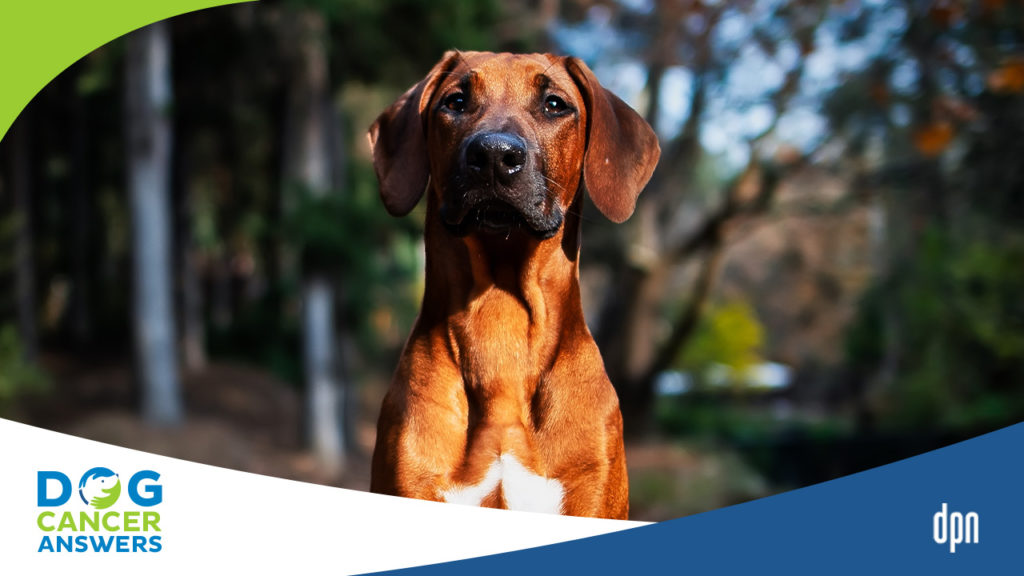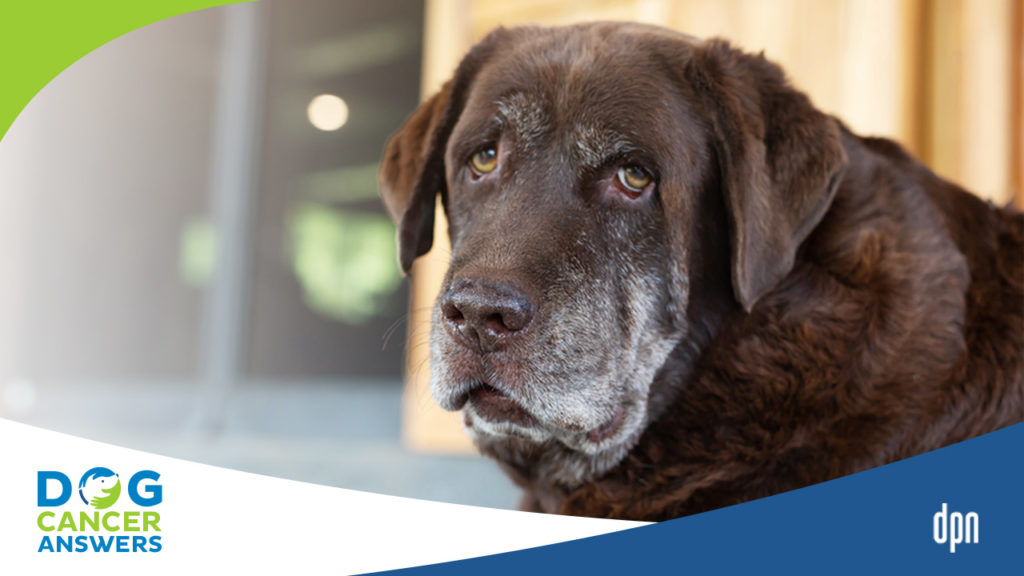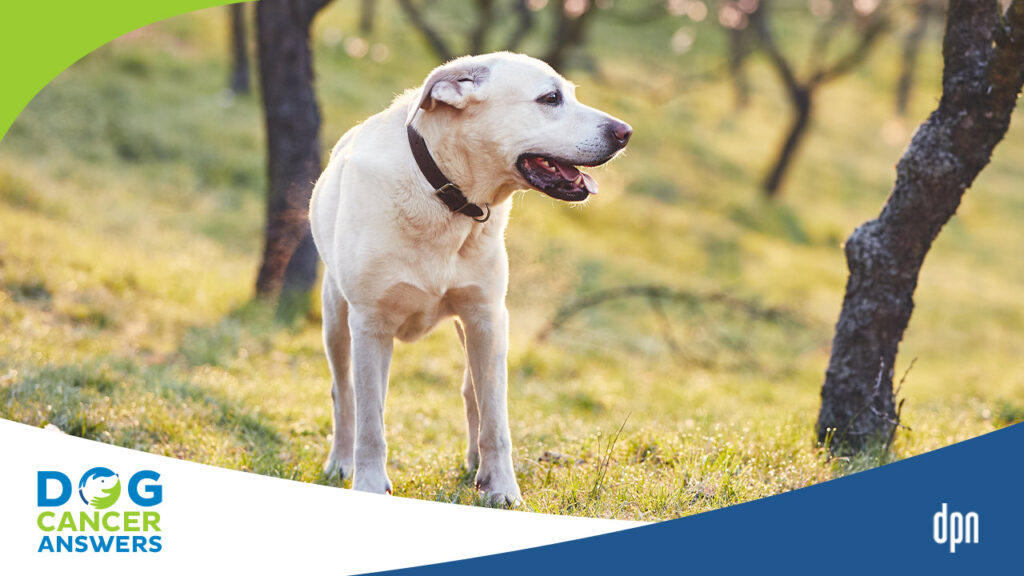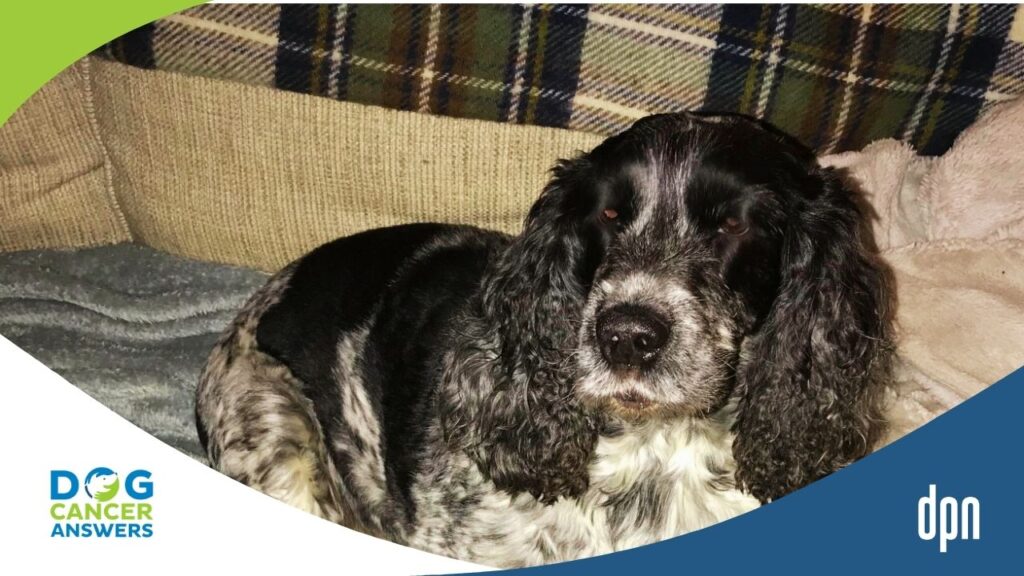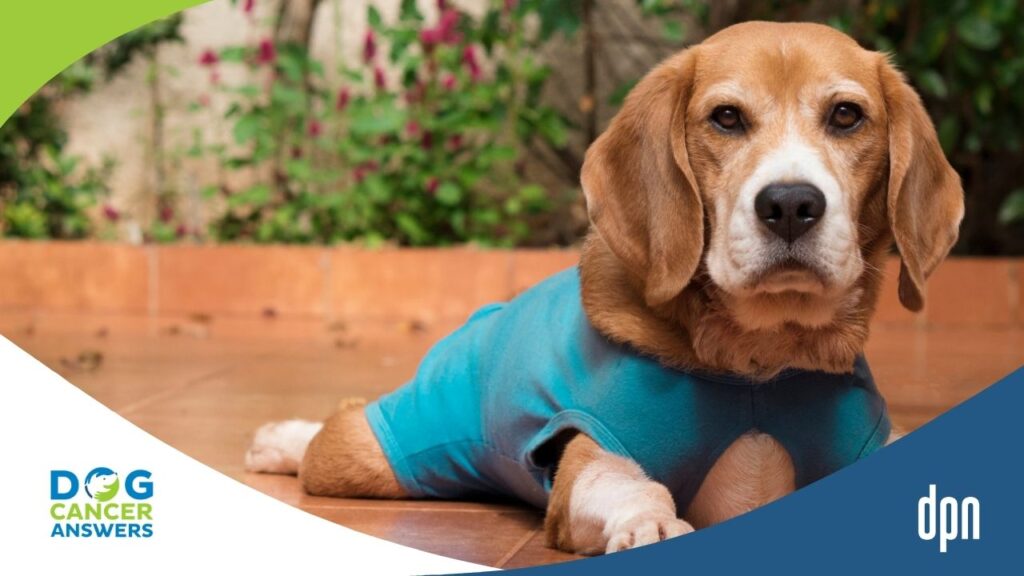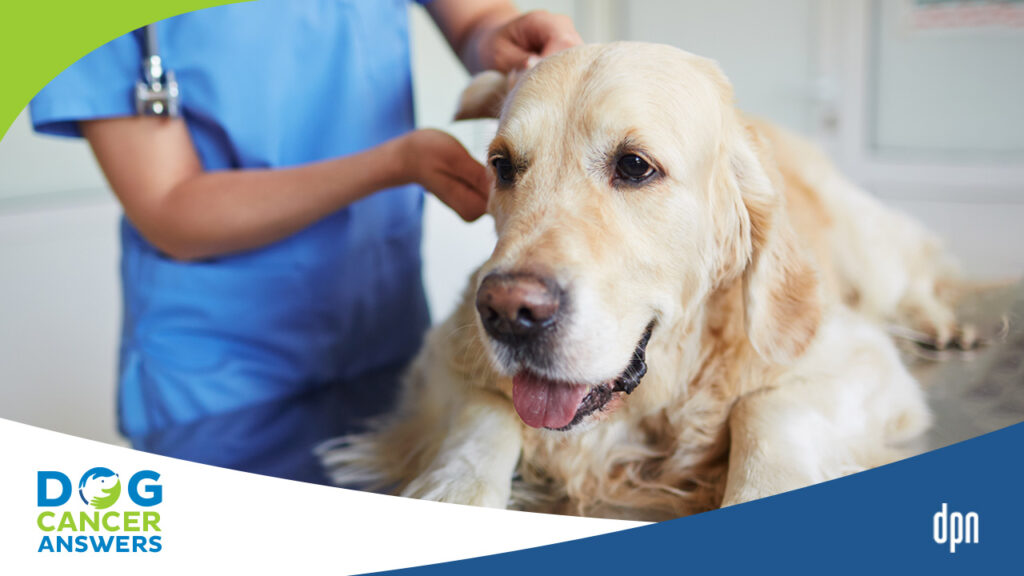[00:00:00] >> James Jacobson: Today on our special Exam Room Series, melanoma, and what you need to know to help your dog.
[00:00:07] >> Announcer: Welcome to Dog Cancer Answers, where we help you help your dog with cancer. Here’s your host, James Jacobson.
[00:00:15] >> James Jacobson: Hello friend. Let me start off by saying, I’m sorry. I am sorry that you’re listening to this podcast.
[00:00:23] Sure, I know that it’s an odd thing for a host to say in a welcome message, but the fact that you are listening to my voice now probably means that you have a dog who has been diagnosed with melanoma. I’ve been there. And I know what it is like to have a dog who has cancer. And I also want to let you know that you’re in the absolute best place because you’re in good company.
[00:00:45] Unfortunately, cancer is the number one killer of dogs, but there is a lot of hope. Dogs do not have an expiration date stamped on their forehead. There are so many things that you can do to help your dog after you get a melanoma diagnosis. Now I’m lucky. My veterinarian is Dr. Demian Dressler, author of the bestselling book, The Dog Cancer Survival Guide.
[00:01:09] He is a renowned authority on full spectrum approaches to treating dog cancer. And today you can come into his exam room and listen to what he would tell one of his clients whose dog was diagnosed with a melanoma.
[00:01:25] >> Dr. Damien Dressler: If your dog has been diagnosed with melanoma, one of the things to remember is that this cancer has a different behavior depending on where it is popping up on your dog’s body, because there are areas where melanomas show up where they’re not that bad. And there are areas where they show up where they’re extremely aggressive.
[00:01:46] And we talk about this at some length in The Dog Cancer Survival Guide. If a little brown bump shows up on an area of your dog, such as the torso, the shoulder, the thigh, the belly, most of the time, it’s not going to be aggressive. However, one of the areas where it is quite aggressive is in the mouth. That’s an area where you want to move quickly.
[00:02:11] Similarly, if it shows up in the nails, the nail bed or the toe at that area, that’s also an aggressive area. These are important tumors to act quickly on and not delay. And the reason for that is because they spread many times. If we’ve got high suspicion of a melanoma in the toe, the toe should be removed.
[00:02:32] If we have high suspicion of a melanoma in the mouth, that tumor should be removed also. One of the most critical things that we need to remember, particularly if we’re the type of person that’s interested in what they call complimentary or alternative care is the strength of these cancers a lot of times will outweigh some of the steps that would be part of complimentary care or alternative cancer care. What I mean by that is they need to be cut out practically speaking. And sometimes people don’t want to do that because they don’t want their dog to have a toe that’s gone. Understandable. I get it. But part of treatment plan analysis is what’s the best choice that makes the most sense in the long run and sometimes guardianship involves, making difficult decisions.
[00:03:21] But what do you get out of the deal for your dog? It could be lifesaving. So with these types of tumors, because they’re very aggressive, even though it’s a difficult guardian decision to make, it’s still better for the animal. And sometimes it’s really hard to be a guardian. This is one of the reasons why in The Dog Cancer Survival Guide, we talk about putting your oxygen mask on first. Sometimes it’s good to take a few deep breaths, to take some time, to talk to some people, to take 48 hours to show, to really clear your head with the self-management steps. Again, discussing the guide that can really help clear the head and to make rational decisions.
[00:03:59] Now, melanoma does have a variety of treatments available in addition to surgery, and because of the fact that the aggressive ones do spread in the body, it’s important to take advantage of those. The melanoma vaccine was developed a number of years ago, and that’s something that can be considered, and I think used if you have a malignancy.
[00:04:18] When it first came out, there was a lot of strong support for it. Since then the science has been a little bit mixed, but what’s nice about the melanoma vaccine, this is not a prevention by the way, this is after the dog has been diagnosed, it’s really safe and it’s probably doing some good, that’s a good general approach to take when we’re dealing with something like dog cancer. The same thing can be said about things like diet. A diet change can help as well. And we give a whole diet recipe in the book, as well as the use of different supplements that can be used to help support the body, whether they’re immune supplements or dietary apoptogen supplements, or antimetastatic approaches. There’s a whole bunch of different steps that can be taken when a dog has an aggressive form of melanoma.
[00:05:01] So I’d encourage you to take the time that you need for your treatment plan analysis. Take the steps in the guide, but take action with this type of tumor, because procrastination in this case, isn’t our friend.
[00:05:16] >> James Jacobson: If you’d like to hear more about dog cancer and what you can do to help your dog now, I encourage you to pick up a copy of Dr. Dressler’s book, which just happens to be the sponsor of today’s episode and this entire special Exam Room Series here on Dog Cancer Answers. The name of this best-selling book is The Dog Cancer Survival Guide: Full Spectrum Treatments to Optimize Your Dog’s Life Quality and Longevity.
[00:05:42] The authors are Dr. Demian Dressler, who you just heard from, and Dr. Susan Ettinger, an oncologist in New York. And in a minute, I will tell you how to get their book at a discount. This book is considered the bible of dog cancer, and it covers so much information in an easy to understand, easy to reference guide.
[00:06:01] For example, the book covers everything that you need to know about conventional veterinary treatments, that’s surgery, chemotherapy, and radiation, including how to reduce their side effects. The most effective non-conventional options including botanical nutraceuticals, supplements, nutrition, and mind, body medicine.
[00:06:20] And the book helps you to analyze the options and develop a specific plan for your own dog based on your dog’s type of cancer, your dog’s age, your financial budget and your time constraints, as well as your personality. The Dog Cancer Survival Guide is available wherever fine books are sold, both online and in physical bookstores, it’s available either in paperback or as an e-book edition and the e-book is under $10. The website to get either their paperback or the e-book is www.DogCancerBook.com. And you will save 10%. If you use the promo code PODCAST when you check out, you’ll save 10% .The website again, www.DogCancerBook.com. Use the promo code PODCAST for 10% off. That is www.DogCancerBook.com. I want to let you know that we have lots of free, helpful information on our podcast website, the URL is DogCancerAnswers.com. It’s where you can listen to or download our entire back catalog of episodes. It’s the best way to get the information that you need to help optimize your dog’s life quality and longevity.
[00:07:37] Do you have a question for a dog cancer veterinarian? Well, one of our veterinarians could answer your question on a future episode of Dog Cancer Answers. Please call our listener line and record your question. The telephone number is (808) 868-3200. That is (808) 868-3200. Or visit our website at DogCancerAnswers.com. With dog cancer you want to get relevant information as quickly as possible. So make sure you get the next episode of our podcast as soon as it’s released by subscribing to Dog Cancer Answers in Apple Podcast or your favorite podcast app. We’re also on Spotify as well as YouTube.
[00:08:21] That’s all for this episode in our Exam Room Series, I’d like to thank Dr. Demian Dressler for being our guest today, until next time. I’m James Jacobson from all of us here at Dog Cancer Answers and Dog Podcast Network, I wish you and your dog, a very warm, Aloha.
[00:08:42] >> Announcer: Thank you for listening to Dog Cancer Answers. If you’d like to connect, please visit our website at DogCancerAnswers.com or call our listener line at (808) 868-3200. And here’s a friendly reminder that you probably already know. This podcast is provided for informational and educational purposes only.
[00:09:01] It’s not meant to take the place of the advice you receive from your dog’s veterinarian. Only veterinarians who examine your dog can give you veterinary advice or diagnose your dog’s medical condition. Your reliance on the information you hear on this podcast is solely at your own risk. If your dog has a specific health problem, contact your veterinarian.
[00:09:18] Also, please keep in mind that veterinary information can change rapidly. Therefore, some information may be out of date.


